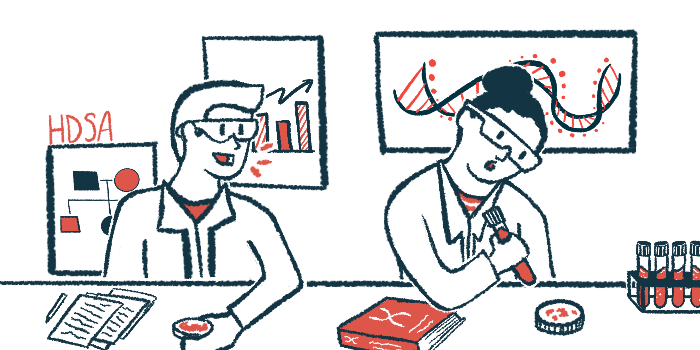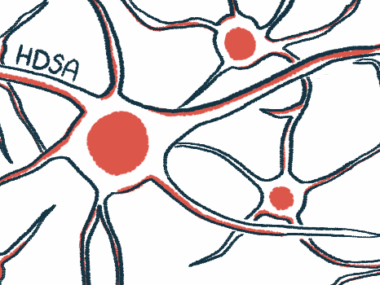HDSA 2025: Nonprofit pushes to protect Medicaid, advance bills
Legislation aimed at easing burden for Huntington's patients
Written by |

The Huntington’s Disease Society of America (HDSA) is pushing to get 10 bills that could help provide support for people with Huntington’s disease passed in the U.S. Congress.
The nonprofit is also advocating against changes to Medicaid that are currently being considered as part of the 2025 budget reconciliation bill. It’s urging the Huntington’s community to get involved in advocating for these legislative priorities and providing a range of resources to help community members contact their congressional representatives.
Phyllis Foxworth, senior manager of advocacy at the HDSA, discussed policy priorities at the HDSA’s 40th annual convention in a talk, titled “HDSA: Federal Advocacy 101.”
“We use our power to alter the relationships of those institutions holding power so we can work together collectively to bring around policy reform, especially as it relates to improving the lives of people living with Huntington’s disease and their families,” Foxworth said.
‘We’ve been at the table, but now we need to drive the conversation’
In the past, the goal of advocacy for rare diseases such as Huntington’s has simply been to have a seat at the table so legislators can hear the voices of patients and families, Foxworth said. But nowadays, the goal is to be at the table and set the menu by directing discussions to provide the best possible support for the Huntington’s community.
“We’ve been at the table, but now we need to drive the conversation,” Foxworth said.
One immediate issue the HDSA is concerned about is the 2025 budget reconciliation bill, dubbed the “Big Beautiful Bill,” which has passed the House and is currently being reviewed in the Senate.
Foxworth highlighted several areas of concern in this bill, particularly about changes to Medicaid, the government program that provides health insurance for low-income, elderly, and disabled Americans.
Current language in the bill includes work requirements for people insured through Medicaid. Foxworth noted the bill carves out exemptions for people with disabilities, but the process of getting certified as having a disability can take years.
Therefore, there’s concern that people with Huntington’s who are unable to work might be caught in the gap where they’re waiting to be certified as having a disability, but aren’t able to access Medicaid in the meantime.
If you want to participate in advocacy, you can do that right now.
The bill would also require states to implement processes to recertify that a person is disabled every six months, and if that process fails for some reason, people may be disenrolled from Medicaid.
Currently, individual states are able to set limits for Medicaid access based on how much equity a person has in their home. The budget reconciliation bill would remove this power from the states and instead implement a flat limit of $1 million nationwide.
Foxworth noted this will likely cause problems for people living in areas of the country where property values are very high, such as the Northeast and the West Coast.
Another concern with the bill is that it aims to add a $35 copay for each doctor’s visit for people on Medicaid expansion. With the number of providers that people with Huntington’s often need to see on a regular basis, this “can add up very, very quickly,” Foxworth said.
The HDSA has created an online portal where members of the community can contact their senators to urge them to vote against these provisions in the bill.
“If you want to participate in advocacy, you can do that right now,” Foxworth said.
HDSA pushing for passage of 10 bills
While the HDSA is advocating against these provisions in the budget reconciliation bill, the organization is also pushing for 10 other bills to be passed.
Two of these bills, the Epic Act and the Orphan Drug Act, seek to change the ways in which the federal government is able to negotiate the prices of certain drugs, and may help encourage pharmaceutical companies to invest in new Huntington’s treatments.
Other HDSA-supported bills could improve access to care, including by limiting insurance policies that require patients to try and fail one drug before they will be covered for another therapy.
The Telehealth Coverage Act looks to make permanent Medicaid coverage of telehealth visits that were allowed under legislation passed during the COVID-19 pandemic, but are set to expire later this year. The Expanded Telehealth Act would broaden coverage of telehealth services to also include physical, occupational, and speech therapists.
Other bills would allow tax deductions up to $5,000 for caregivers of people with Huntington’s and simplify the process by which caregivers can apply for federal assistance.
Finally, the SSI Savings Penalty Elimination Act aims to increase the amount of resources that disabled people are allowed to have to be eligible for supplemental security income. It would specifically raise the cap from $2,000 to $10,000 for individuals and from $3,000 to $20,000 for couples, and would require adjustments based on inflation.
Advocates urged to meet with their congresspeople
Foxworth emphasized that getting any of these bills passed won’t be easy — the process of turning a bill into law is arduous and complex, requiring buy-in from congresspeople in both chambers and leaders of congressional committees. Still, she said there are many ways that members of the Huntington’s community can get involved.
The HDSA’s website provides a variety of resources and advocacy opportunities, including bimonthly newsletters and action alerts.
One upcoming opportunity for advocacy is to schedule meetings with congressional representatives during the August recess, when congresspeople are going home to their individual districts. The HDSA has created an online tool to help community members schedule meetings with their representatives.
“They got nothing going on except to meet with you,” Foxworth said. “Go to their town halls, schedule meetings with them.”
For those who want to get more regularly involved with legislative advocacy, the HDSA Advocacy Leaders Program meets the third Wednesday of each month. Anyone who wants to join can email [email protected] to be added to notifications.
Foxworth stressed that participation in all these advocacy programs can be done on an individual basis to whatever extent each person feels comfortable.
“People step up when they are able, people step back when they need to, and there’s never any pressure from anybody to do more than you can do,” Foxworth said. “It’s an opportunity for you if you feel it’s the right calling for you.”
Note: The Huntington’s Disease News team is providing virtual coverage of the Huntington’s Disease Society of America annual convention June 26-28. Go here to see the latest stories from the conference.




